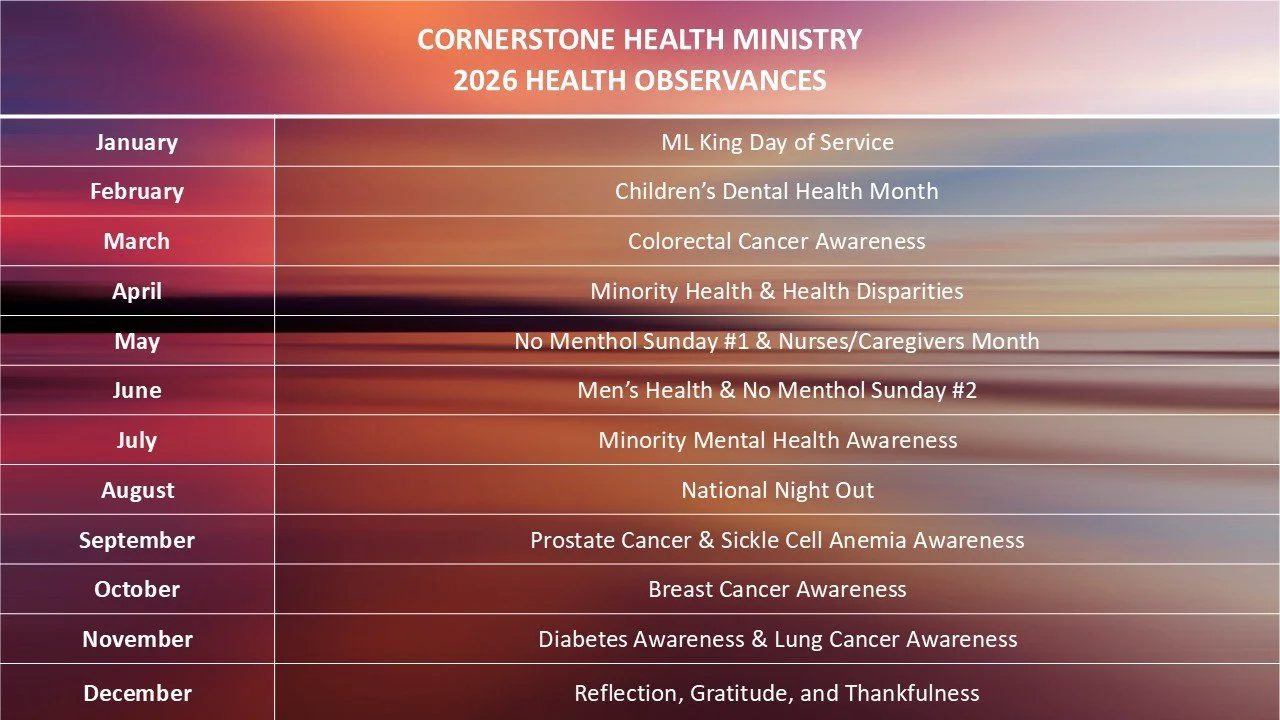Health Ministry
Servant Leader: Deacon Brian Cody
The Cornerstone Health Ministry provides information and programs supporting healthy living for the church and for the community. We promote healthy living strategies by hosting community health events, offering healthy cooking classes, and providing healthy meals and recipes to the congregation several times per year.
Cornerstone Health Ministry’s mission is to reduce the prevalence and impact of high blood pressure, heart disease, cancer, and diabetes particularly in underserved and high-risk populations. Being led by the Holy Spirit, we commit to empowering individuals to achieve and sustain optimal health by delivering evidence-based education, prevention services, and accessible community health programs.
Our signature event is the annual community gathering “Health is a Family Affair” which is jointly sponsored by Cornerstone MBC, St John MBC, and True Hope Evangelical Health Ministries (a Community of Health Ministries) and seeks to engage our Bayview community with the life-enabling organizations of the San Francisco peninsula.
November Health Tip: National Diabetes Awareness Month
https://diabetes.org/tools-resources/tests-calculators
October Health Tip: Cornerstone’s Breast Cancer Ministry
May Health Tip: Mental Health









April Health Tip: Health & Community
JANUARY 2025 HEALTH TIP Healthy Diet https://www.cnn.com/2019/01/03/health/mediterranean-diet-starting-tips
DECEMBER 2024 HEALTH TIP Safe Toys and Gifts: https://www.eversightvision.org/safe-toys-gifts-month/



